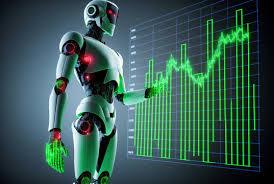In the realm of financial markets, Forex trading stands out as one of the most dynamic and potentially lucrative arenas for investors. With a daily turnover surpassing trillions of dollars, the foreign exchange market presents unparalleled forex robot for those willing to navigate its complexities. However, the volatile nature of Forex trading demands constant vigilance and swift decision-making, which can be challenging for individual traders.
In recent years, technological advancements have ushered in a new era of trading automation, offering solutions to mitigate the challenges faced by human traders. At the forefront of this revolution are Forex robots – sophisticated algorithms designed to execute trades autonomously based on predefined criteria. These robots, also known as Expert Advisors (EAs), have garnered significant attention within the trading community, promising to enhance efficiency, minimize emotional bias, and potentially optimize returns.
Forex robots operate by analyzing market data, identifying patterns, and executing trades according to preset parameters. These parameters can range from simple moving average strategies to complex algorithms incorporating multiple technical indicators and risk management protocols. By leveraging computational power and speed, these robots can execute trades with precision and discipline, often in milliseconds, which is beyond the capabilities of human traders.
One of the primary advantages of Forex robots is their ability to operate around the clock, capitalizing on opportunities in global markets irrespective of time zones. This continuous operation ensures that trading opportunities are not missed, thereby maximizing the potential for profit. Moreover, automation eliminates the need for constant monitoring, allowing traders to pursue other interests or occupations while their automated systems manage their portfolios.
Furthermore, Forex robots can help alleviate common pitfalls associated with human trading, such as emotional decision-making and cognitive biases. Fear, greed, and other emotions can often cloud judgment, leading to impulsive actions and suboptimal results. In contrast, robots execute trades based solely on data and predefined rules, free from emotional influence. This disciplined approach can contribute to more consistent and rational trading outcomes over the long term.
However, despite their potential benefits, Forex robots are not without limitations and risks. Like any trading strategy, automated systems are subject to market uncertainties and inherent risks. Unexpected geopolitical events, economic indicators, or sudden shifts in market sentiment can lead to losses, even for the most sophisticated algorithms. Additionally, the effectiveness of a Forex robot depends heavily on the quality of its underlying strategy and the accuracy of its parameters. Poorly designed algorithms or inadequate risk management protocols can amplify losses and undermine the integrity of the system.
Moreover, the proliferation of Forex robots has led to concerns about their impact on market dynamics. Critics argue that widespread adoption of automated trading systems may exacerbate market volatility and contribute to flash crashes or destabilizing trends. Additionally, there is a risk of over-reliance on automation, leading to complacency and a lack of human oversight. While robots can enhance efficiency, they should complement rather than replace human judgment and expertise in trading decisions.
In conclusion, Forex robots represent a promising avenue for traders seeking to optimize their trading strategies and streamline their operations. By harnessing the power of automation, these algorithms offer the potential to enhance efficiency, minimize emotional bias, and capitalize on market opportunities. However, traders must approach automated trading with caution, ensuring thorough testing, robust risk management, and ongoing monitoring to mitigate risks and maximize returns. Ultimately, while Forex robots can augment trading capabilities, human insight and discretion remain indispensable in navigating the complexities of the financial markets.

More Stories
The Evolution and Enduring Popularity of Slot Machines
The Fascinating World of Slot Machines: From Mechanical Reels to Digital Adventures
Slot Games: The Excitement of Spinning Reels